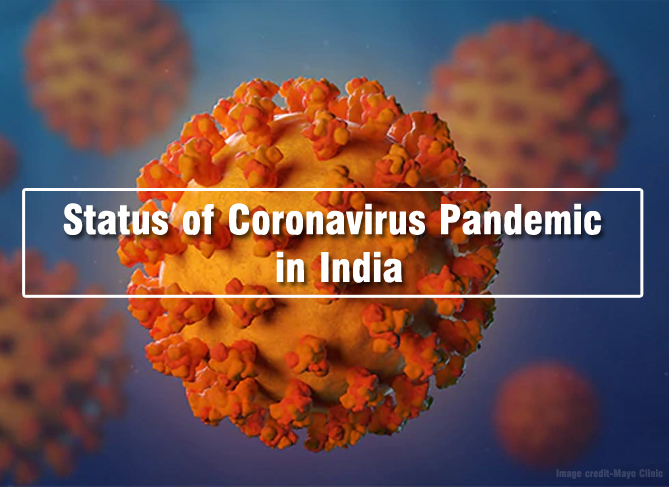As India faces a second wave of novel coronavirus across the country, World Health Organisation (WHO) top Scientist Dr Soumya Swaminathan stepped in to break silence on surge in COVID cases. She said that prelim data has revealed that the Indian variant is more contagious and transmissible. She highlighted that there is heterogeneity in the country when it comes to the spread of the infection.
The double mutation strain comprises variants discovered in Brazil and South Africa, escaping the body’s immune response. According to the United Nations health agency, the B.1.617 variant of Covid-19 first found in India last October seemed to be spreading more quickly than the original version of the virus. It comprises two vital mutations named E484Q and L452R to the outer spike portion of the virus that connects to human cells. Both mutants are individually discovered in other coronavirus variants, but they have been combined for the first time in India.
It’s essential to learn that there are three sub-lineages of B.1.617, which have some differences in their exact mutations. B.1.617.1 and B.1.617.3 have the E484Q mutation, but B.1.617.2 does not. The PHE(Public Health England) believes the sub-lineages B.1.617.1 and B.1.617.3 as “variants under investigation” under the names VUI-21APR-01 and VUI-21APR-03.
Emphasising the vaccination, Swaminathan stated administering the jab is crucial as it reduces the severity of coronavirus. WHO’s lead on Covid-19, Maria Van Kerkove, said, “As such, we are classifying this as a variant of concern at the global level.”
According to the WHO director-general, Tedros Adhanom Ghebreyesus, the WHO foundation introduced “Together for India”, which urges to raise funds to procure oxygen, medicines and protective equipment for medical practitioners, which will help meet India’s demand of oxygen supply amidst the shortage.
“The epidemiological features that we see in India today do indicate that it’s an extremely rapidly spreading variant,” admonished Dr Swaminathan.
Further, Public Health England (PHE) suggested the B.1.617.2 version of the Indian variant. It is classified as a Variant of Concern (VOC) as it seems to spread rapidly than two other identified subtypes of the Indian variant. Indian variant appears to be augmenting in France, which has now recorded at least 20 cases.
White House chief medical adviser Anthony Fauci asserted earlier this week that preliminary evidence from lab studies showed Covaxin, a vaccine manufactured in India, seems capable of neutralising the variant.
ICMR also discovered that convalescent sera of the COVID-19 cases and recipients of Bharat Biotech’s BBV152 (Covaxin) were able to neutralise VUI B.1.617, however, with a lower efficacy.
The Director of the Institute of Genomics and Integrative Biology (IGIB), Anurag Agarwal, said the study on the effectiveness of the available vaccines on the B.1.617 variant SARS-CoV2 recommends that post-vaccination, the infections are milder.
Meanwhile, the number of active cases of coronavirus infection in the country has surpassed 37 lakh, amounting to 16.53 per cent of its total caseload. At the same time, the registered national COVID-19 recovery rate was at 82.39 per cent.




